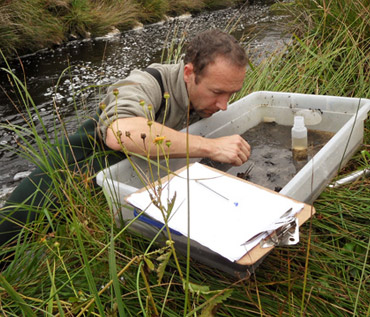Analysis plays an important role in assessment and maintenance of food quality and safety, both in industry as well as for enforcement authorities at national and international levels as per FSSAI.
Knowledge of chemical composition of food is important to health, well-being and safety of the consumers. Similarly, knowledge of the chemical and biochemical composition of food is usseful to the manufacturers in understanding the importance of various nutritional constituents so that the amount of essential nutrients may be maintained or improved during, and after processing.
The physical & chemical properties of food products have not received adequate attention from the food scientists, although a thorough understanding of the physical changes and principles involved in delivering food products from farm to consumers is essential.
There are various types of physical analysis perform based upon their properties
- Optical properties like Colour, Refractive Index, Optical rotation etc.
- Rheological properties like Viscosity, Density etc.
- Sensor evolutions like Taste, odour etc.
- Structural properties like Particle size, granularity
- Thermal properties like Melting point, Pour point, Cloud point, Flash point etc.
- Solubilty properties like Solubility, Solubility in hot & cold conditions, Insolubility index etc.
- Proximate (Moisture, Ash, Protein, Fat, Energy, Carbohydrates)
- Fiber analysis (Total, Crude, Dietary), Sugar analysis (Total, Reducing & Non reducing sugars).
- Acid Insoluble Ash, Water soluble Ash, Sulphated Ash.
- Nutritional Labeling and Value Analysis
- Shelf life study testing
- Food Additives and Preservatives Testing
- Sensory Testing to compare a product to the competition and/or evaluate the product by a consumer panel
- Minerals like Ca, Mg, Na, K, Fe, Zn and all trace metals (Pb, Cd, As, Sn, Hg etc.)
- Vitamin analysis (Water soluble vitamins like B1, B2, B6, B9 etc. & Fat soluble vitamins like A, D, E, K), Sugar profile (like Glucose, Fructose, Sucrose, Lactose etc.), Amino Acid profile, Organic Acid profile (like Citric acid, Oxalic acid, Acetic acid etc.), Fatty Acid profile (SFA, MUFA, PUFA & Omega fatty acid profile)
- Toxins, Antioxidants (TBHQ, BHA / BHT), Alcohols etc.
- Soil testing: Physical tests - Bearing capacity; Shear strength; Standard penetration tests etc
- Soil reclamation, Salinity studies & remedial measures.
- Heavy metals, pesticides & soil microbes
- Soil fertility & micro-nutrients suitability for different types of crops
As per IS.10500(2012),IS 14543(2004),IS13428(2005) and industrial water,etc
he Residue Analysis Lab is a state-of-the-art, ultra-clean analytical laboratory with the most advanced instrumentation for sample preparation and chemical analysis at trace and ultra-trace levels, which ensures reliability, traceability and confidentiality of analysis carried out by it.
This lab is dedicated to the identification and quantitative analysis using advanced analytical approaches for fully automated, low-cost, high sample throughput methods of a wide range of analytes in complex matrices.
- Pesticide residue
- Antibiotic residue
- Mycotoxins
- Volatile and Semi-Volatile Organic Compounds (SVOCs & VOCs)
- Melamine & Cyanuric Acid
- Methyl Mercury in soft drinks and fruit based products
- Organic dye
- PCB & PAH


